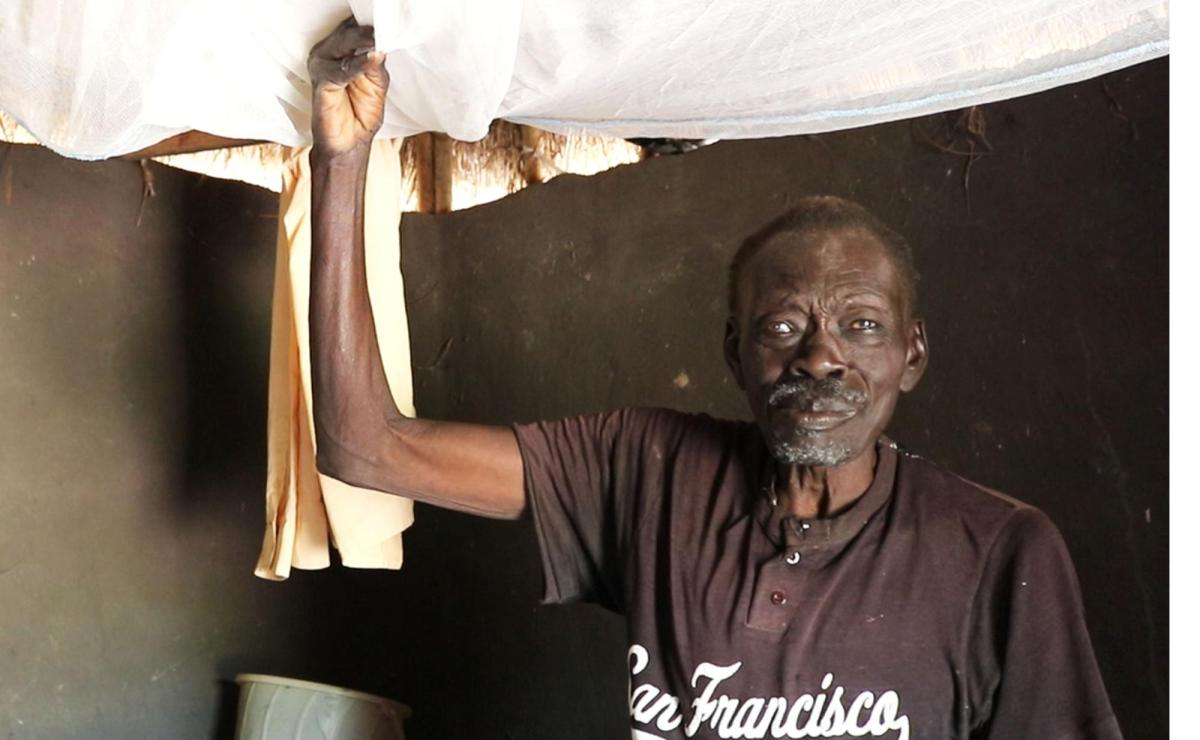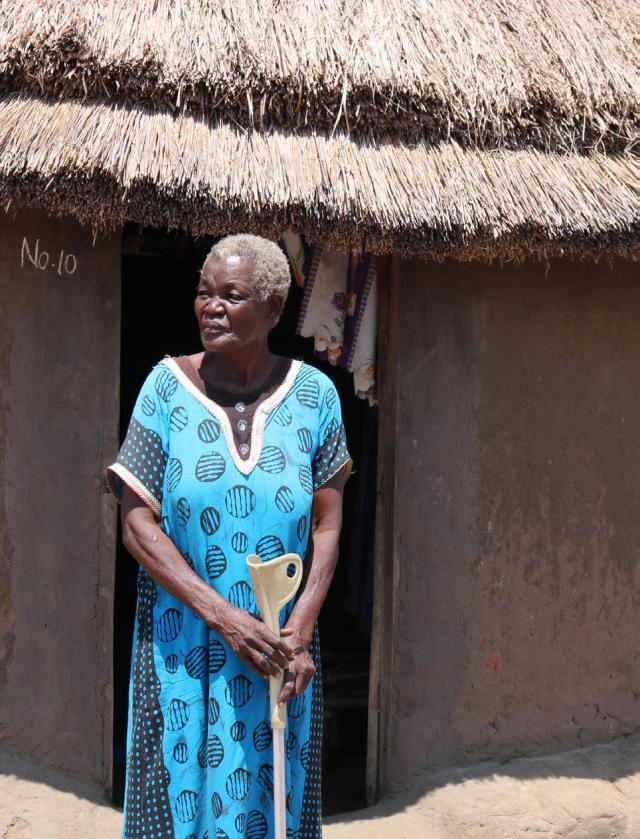The community service approach restores hope among vulnerable refugees

In Northern Uganda’s Pagirinya settlement in Adjumani district, Abelino Wali, aged 60 years, lies on his wooden bed as he reflects on his journey from South Sudan to Uganda. His wooden bed has a ragged, thin mattress and a brand new one. On arrival in Uganda in 2016, Wali had the tattered mattress, and its hardness caused him body pains when LWF intervened with the brand-new mattress. Despite the food items and land allocated to him, Wali lived a miserable life because he could hardly do manual work to supplement the support and provide basic needs for himself.
“The black ants would bite me, and I would wake up with a swollen body,” says Wali. “With this new mosquito net, the story has changed, and I don’t have to worry much,” he adds as he shows off the mosquito net that LWF donated to him. Wali is one of the elderly refugees that LWF supports to meet their special needs without their caretakers and family. Wali separated from his wife and children as he fled the war in South Sudan. With whom they reunited in Uganda, his daughter can hardly support him as she has children she takes care of single-handedly.
LWF came as a saviour, and I appreciate. I am living a better life despite my vulnerability,” the 60-year-old appreciates the LWF Uganda’s community service approach. Under the community service approach, LWF, with funding from the United Nations High Commission for Refugees (UNHCR), identifies and makes home visits to persons with specific needs (PSNs), including survivors of violence, disabled persons, unaccompanied minors and the elderly like Wali.
Field staff also make follow up for identified cases and support PSNs with other nonfood items and supplementary foods through the community structures like refugee welfare committees, Ms Clare Anzoo, the LWF Project Assistant in Adjumani district, says. “We use community structures which already have skills like building, and we support them with materials to support the PSNs to construct decent houses,” Ms Anzoo explains.

17 years older than Wali, 77-year-old Betty Ariye is another beneficiary living with disabilities who had benefitted from the community approach since 2015 when she arrived in Adjumani district’s Boroli settlement. Despite her double vulnerability, Ms Ariye takes care of 15 children, including orphans and separated children. With the routine food rations proportionate to the family size, the dependents would not be a significant burden but the fact that she could not construct a decent shelter and provide other nonfood items to the family. Until LWF intervened, the family slept in a small tent on a hard mat, and Ms Ariye lacked a walking aid to enable her to do the essential work at home.
“Life has changed since the LWF gave us two mattresses, two blankets, bedsheets, soap, buckets, basins and my elbow crutches,” Mr Ariye affirms. For sustainability, LWF gave Ms Ariye threads to make
table clothes to sell and get some little money to take care of the young dependents. “I have since started a small business which sells some merchandise, “she notes. With the support, the mother of five, who lost her husband 30 years ago and separated with her two surviving children during the war in South Sudan, feels secure again as the LWF team monitors her condition during home visits. For PSNS who can take care of themselves, the structures support taking them through the distribution lines and bringing them back outside.
-END-

